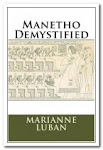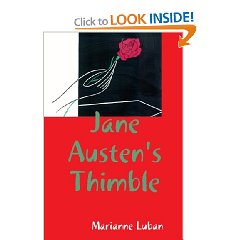“Ever since the Aamu were in Avaris
of the Northland, wanderers among them, destroying what had been
made—they ruled without Ra and he did nothing by divine order down
to the time of my own majesty. I was established upon the thrones of
Ra and it was foretold 'After a period of years she will become a
conqueror'. I am come as the sole [ fem.] Horus, the fiery uraeus
against my enemies. I have banished the abomination of the gods and
the earth has removed their footprints. This is the guidance of the father
of my fathers [Ra] who comes for the day of his reward.”
Elsewhere, in her legitimizing texts,
Hatshepsut claims that, in Year 2 of her father, Thutmose I, an
oracle proclaimed the kingship for her during the festival of Amun.
Thereupon, she was crowned co-regent at Heliopolis by Atum, himself.
Clearly, then, the “majesty” of Hatshepsut extended, at least for
the purposes of propaganda, all the way back to the beginning of her
father's reign and his accomplishments could be shared. Manetho, the
Late Period historian, also believed that a king named “Tethmosis”,
the first pharaoh of his Dynasty 18, drove out the “Shepherds”,
who were associated with Avaris. Prior to that time, Manetho speaks
of a prolonged war against some Shepherds, probably including the
participation of those Theban princes of Dynasty 17. Both Kamose
and Ahmose battled the Hyksos and Ahmose pushed them to Sharuhen—not
very far from Egypt proper—before his attention was called to the
Nubians. The Hyksos/Shepherds did lose their hegemony over the Delta
then, but that evidently did not prevent the people the earlier
Egyptians called the Aamu from returning to the walled city of Avaris
and unspecified others making a home there, as well. The action is
precisely defined in the Speos Artemidos text. Nobody was slain,
there was no battle to speak of—but the Aamu were sent on their way
and soon the elements erased all trace of them at Avaris. Because
they raised sheep and goats, ate mutton, sacrificed rams, and wore
wool garments, the Aamu were abhorred by the gods. Even in the Bible
it states that Moses was loathe to anger the Egyptians by sacrificing
their sacred animals. [Exodus 8:26] The entire Speos Artemidos text leads up to that very important day, the expulsion of the foreigners, the Aamu, with the sun-god, Ra, appearing overhead to gloat or rejoice at the spoils [sw] that were taken from those those who did not give him the proper respect.
The Aamu as depicted in the 12th Dynasty tomb of Khnumhotep II, not very far from the Speos Artemidos.








